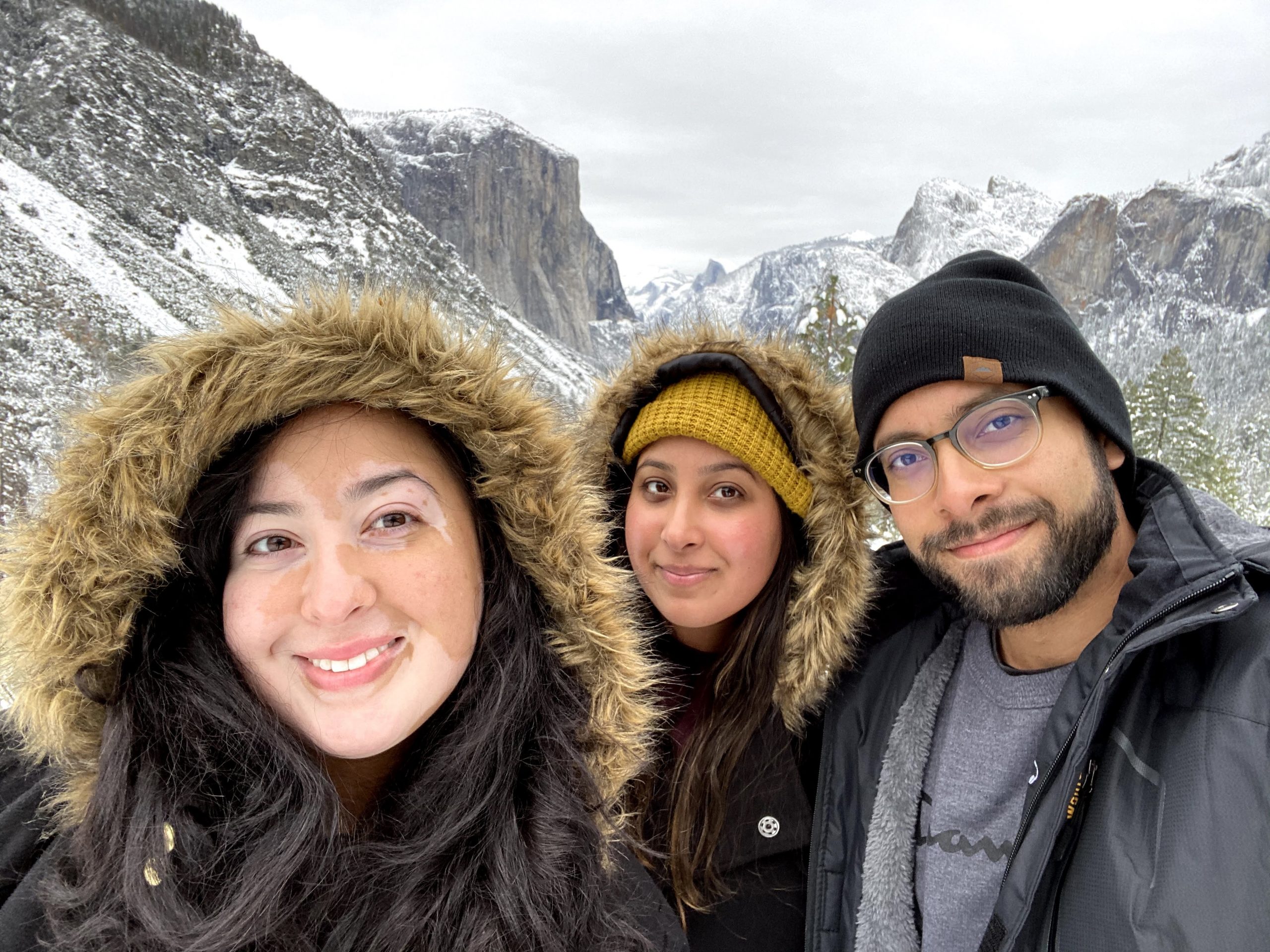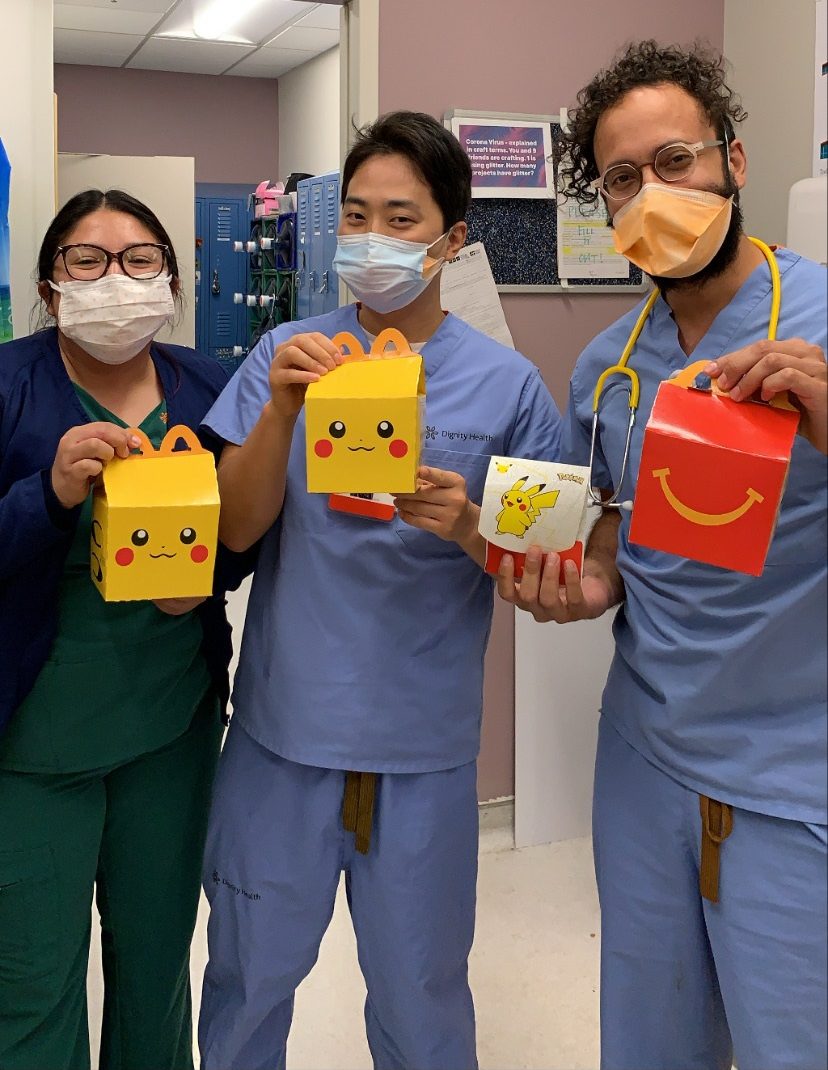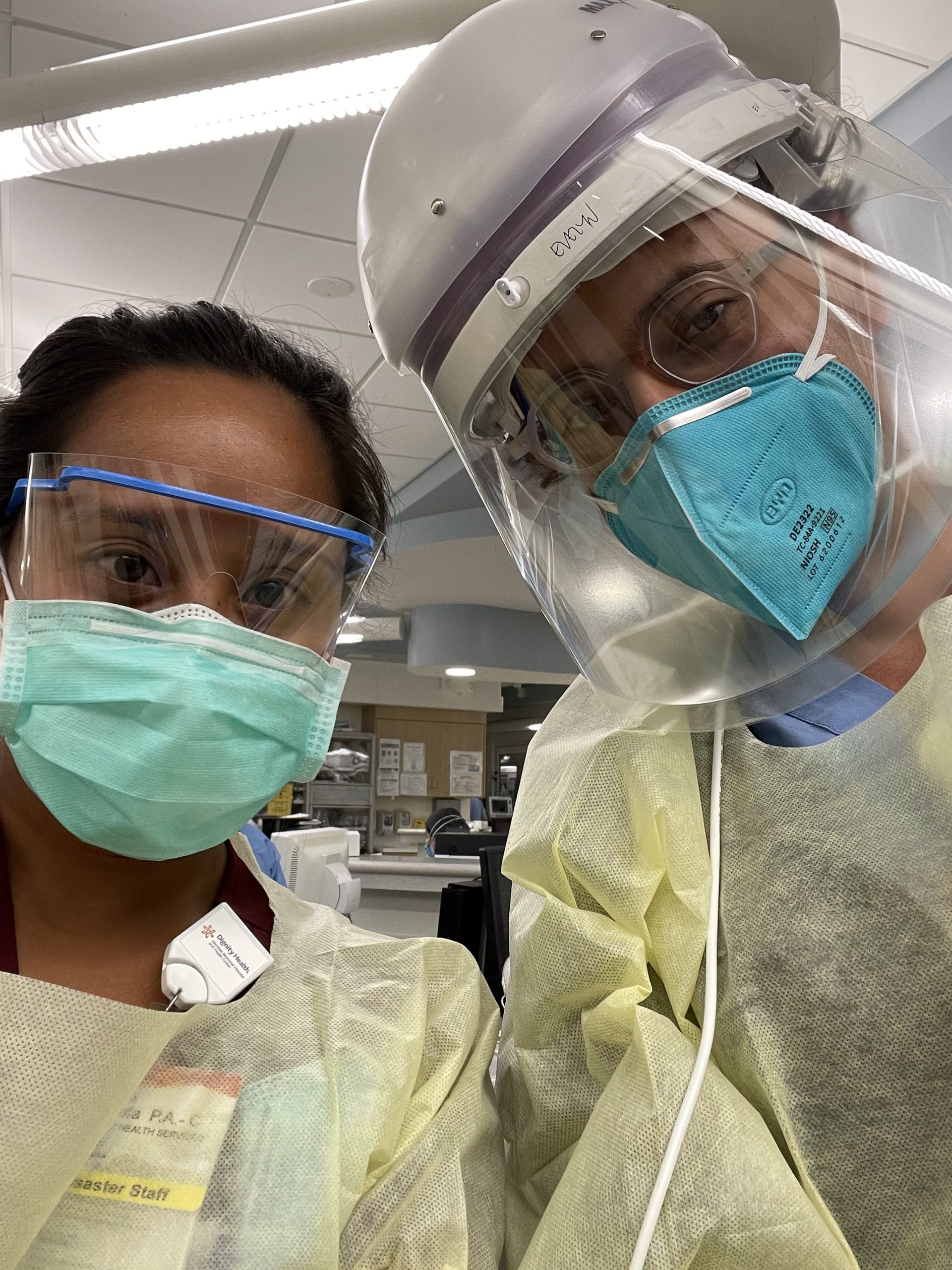PA’s Immigrant Parents Inspire His Career in Critical Care
Omar Razack, PA-C, Works Through the Pandemic in Los Angeles
March 26, 2021
By Kate Maloney

Omar Razack, PA-C, is the child of immigrants. His parents left Trinidad and Tobago for Canada, where they would have access to better education and increased job opportunities. Razack and his siblings – triplets – were born in Toronto and the family moved to the U.S. five years later. They settled in Miami, where both of Razack’s parents had found employment.
Razack recalls his childhood fondly. “I grew up in a proud West Indian household,” he says. West Indian culture contains aspects of many other cultures, Razack explains. His family is of mostly Indo-Caribbean background, and his parents incorporated both Indian and Trinidadian traditions and customs in the family celebrations and holidays. “It was sometimes confusing to me to understand my background as a child,” Razack admits. “But I was able to appreciate my unique background as I grew older.” Today, the Razacks celebrate their heritage by gathering as a family frequently, eating traditional meals, teaching others about their culture, and passing on values and traditions to the next generation.
[Stay connected to your PA community – join or renew your membership today]
“Being immigrants, my parents always reminded me of the great opportunity we have here in the U.S., and also that we have to work twice as hard to achieve it. It was daunting to be in that position growing up, but I’m so proud my parents were able to be such great role models for me.”
Following in His Mother’s Footsteps
Razack’s being a triplet ultimately led to him being a PA in critical care. His mother’s delivery resulted in multi-organ failure and a tracheostomy. She required long-term rehabilitation. Once recovered, she was inspired to become a healthcare provider herself. She went back to school and became a registered nurse. “My mom was a nurse as long as I can remember,” Razack says. “She even won nurse of the year at the prestigious Cleveland Clinic Florida. Her story was inspiring in every way.”

Razack was committed to a medical profession but wasn’t introduced to the PA career until he worked as an emergency room scribe in college. “I liked the fact that I could work closely with patients, have a flexible career, and be part of healthcare teams and an evolving profession.” He applied to PA school and ended up attending Long Island University in Brooklyn, New York.
Razack found his experiences in Brooklyn life changing. “New York City is one big melting pot. I was exposed to so many different backgrounds and cultures, and I was the one providing medical care to all these different people,” he says. One of his rotation sites sticks with him in particular. Patients, both visitors and immigrants to the U.S., would arrive directly from the airport. Many were seeking healthcare for the first time in their life. “It was extremely rewarding,” he says. “It gave me a passion for providing care to those who are underserved or vulnerable.”
[Sixtus Atabong, PA-C, Leads Others to Help Underserved Communities Around the World]
When Razack graduated, he knew two things: due to his mother’s experience, he wanted to work in critical care; due to his experience in Brooklyn, he wanted to work with multi-cultural, underserved populations. He started out by gaining critical care experience in Olney, Maryland, before moving to Los Angeles to be closer to his siblings. In LA, he sought work with underserved populations, especially immigrant populations, as he felt uniquely positioned to relate to their hardships and struggles. He has worked for two medical centers in LA and in both positions has been able to deliver care to low-income, medically-underserved, homeless patients. “It’s been exactly the kind of work I was looking for,” he says. “When I’m at work, I feel like ‘this is why I became a PA’ every day.”
LA During COVID-19

Razack’s been on the front lines of the COVID-19 pandemic in one of the country’s hardest hit cities. Razack worked days on end during LA’s holiday surge. “This past year has been extremely difficult, a roller coaster of emotions,” he says. As a critical care PA, he already had much of the knowledge he needed to treat COVID-19 patients, but has learned more about ARDS and ventilator management. “This pandemic does not discriminate. We’ve treated patients who are young, old, rich, poor – from every walk of life,” he says. He admits that it’s been hard, too, especially in the ICU. “We’ve had to process a huge amount of mortality,” he says. But his team has worked together to not just treat the patients, but handle the burden of being a healthcare provider during this time. “My team tried to make every member of it feel valued and we worked hard – together – to provide the best care that we could.”
[PA Saibatu Mansaray Thrives in High-Pressure Situations]
The Next Generation of PAs
After a tumultuous and trying year, Razack now sees a glimmer of hope. He sets his sights on the future of the PA profession. As a PA of color himself, Razack knows how meaningful it is for patients to see providers who look like them, or for future PAs to see themselves reflected in currently practicing PAs. He wants to be a mentor to these future PAs, to encourage students of color to consider the PA profession. “PA school should be more accessible and affordable,” he says. “The profession is extremely rewarding, flexible, and it’s evolving, too. I hope that the next generation of PAs is more inclusive – racially diverse, socio-economically diverse, culturally diverse. We will all benefit.”
Omar Razack, PA-C, works in critical care for Dignity Health, at locations in Los Angeles and Glendale, California. He can be reached at [email protected].
Kate Maloney is AAPA’s senior manager of corporate communications. Contact her at [email protected].
You May Also Like
AAPA Member Resources
PA Saibatu Mansaray Thrives in High-Pressure Situations
Sixtus Atabong, PA-C, Leads Others to Help Underserved Communities Around the World
PAs Featured in Emmy-Winning Film Spotlighting Social Justice Medicine
Thank you for reading AAPA’s News Central
You have 2 articles left this month. Create a free account to read more stories, or become a member for more access to exclusive benefits! Already have an account? Log in.



